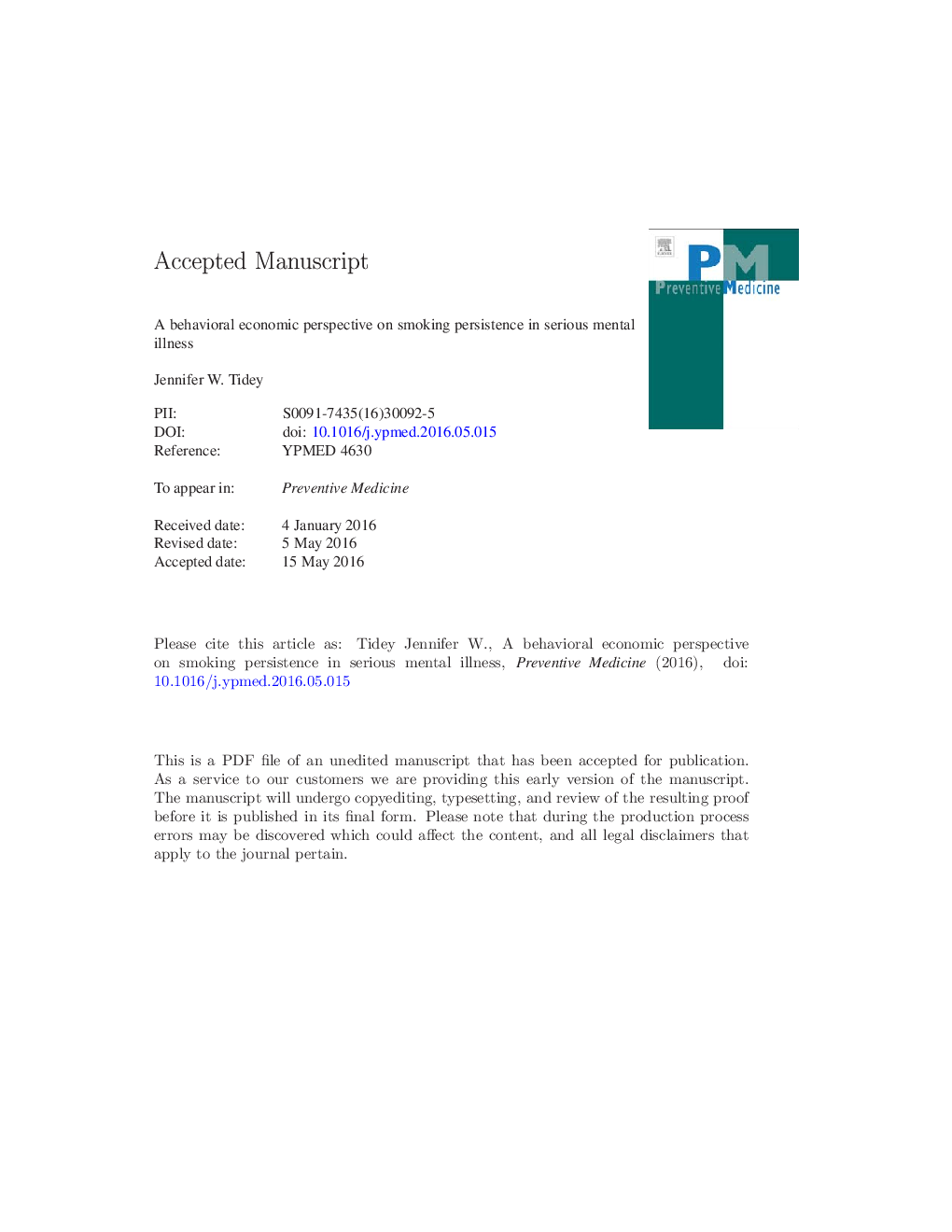| Article ID | Journal | Published Year | Pages | File Type |
|---|---|---|---|---|
| 5635733 | Preventive Medicine | 2016 | 19 Pages |
Abstract
Serious mental illness (SMI) is associated with disproportionately high rates of cigarette smoking. The identification of factors that contribute to persistent smoking in people with SMI may lead to the development and adoption of tobacco control policies and treatment approaches that help these smokers quit. This commentary examines factors underlying smoking persistence in people with SMI from the perspective of behavioral economics, a discipline that applies economic principles to understanding drug abuse and dependence. Studies, conducted in the Northeastern US within the past 30Â years, that compare the reinforcing effects of nicotine and the costs of smoking in smokers with and without schizophrenia and depression are discussed, and interventions that may reduce the reinforcing efficacy of nicotine and increase the costs of smoking in people with SMI are described.
Keywords
Related Topics
Health Sciences
Medicine and Dentistry
Complementary and Alternative Medicine
Authors
Jennifer W. Tidey,
